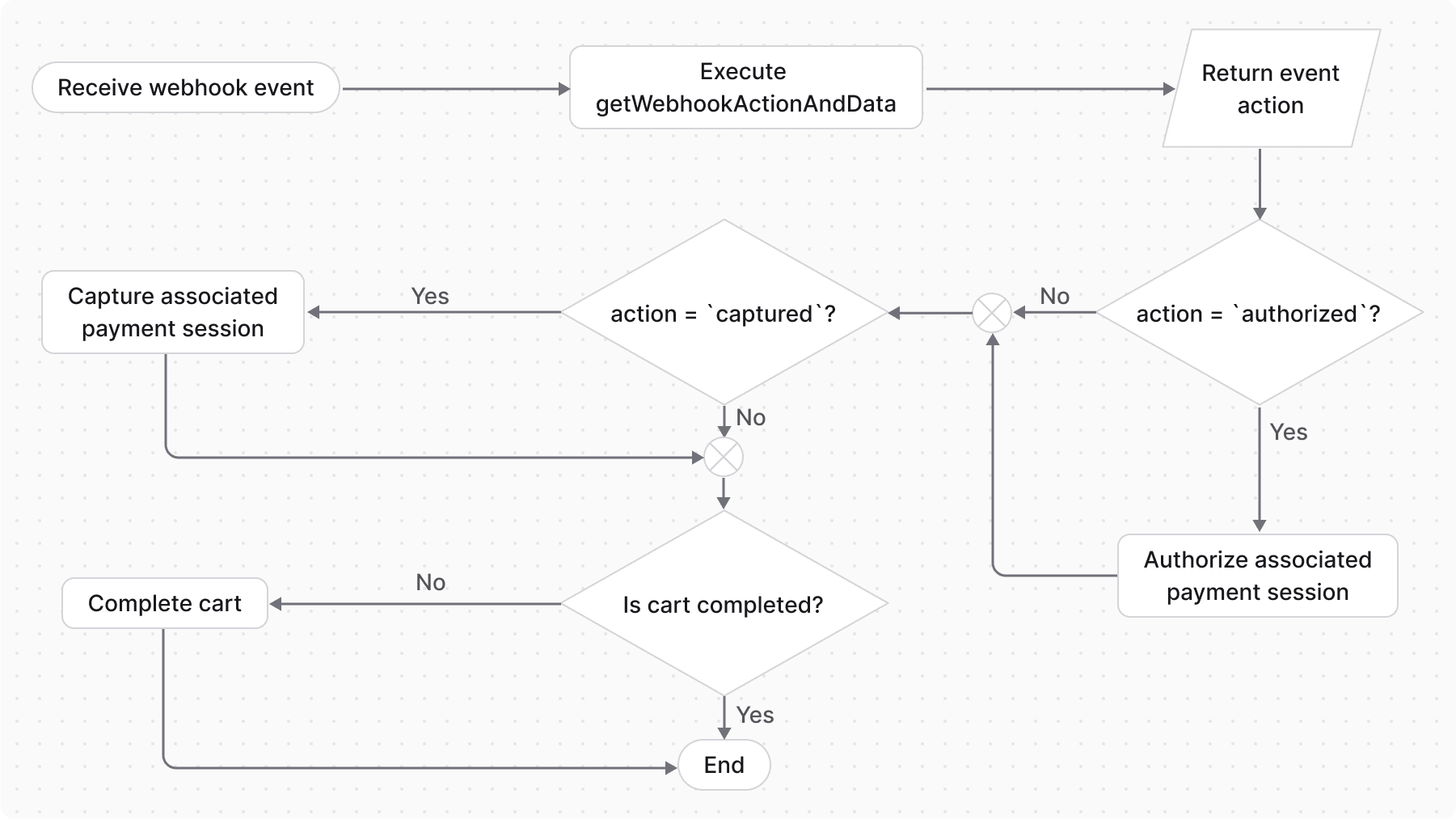Payment Webhook Events
In this guide, you’ll learn how you can handle payment webhook events in your Medusa application and using the Payment Module.
What's a Payment Webhook Event?#
A payment webhook event is a request sent from a third-party payment provider to your application. It indicates a change in a payment’s status.
This is useful in many cases such as:
- When a payment is processed (authorized or captured) asynchronously.
- When a payment is managed on the third-party payment provider's side.
- When a payment action on the frontend was interrupted, leading the payment to be processed without an order being created in the Medusa application.
So, it's essential to handle webhook events to ensure that your application is aware of updated payment statuses and can take appropriate actions.
How to Handle Payment Webhook Events#
Webhook Listener API Route#
The Medusa application has a /hooks/payment/[identifier]_[provider] API route out-of-the-box that allows you to listen to webhook events from third-party payment providers, where:
[identifier]is theidentifierstatic property defined in the payment provider. For example,stripe.[provider]is the ID of the provider. For example,stripe.
For example, when integrating basic Stripe payments with the Stripe Module Provider, the webhook listener route is /hooks/payment/stripe_stripe.
You can use this webhook listener when configuring webhook events in your third-party payment provider.
getWebhookActionAndData Method#
The webhook listener API route executes the getWebhookActionAndData method of the Payment Module's main service. This method delegates handling of incoming webhook events to the relevant payment provider.

If the getWebhookActionAndData method returns an authorized or captured action, the Medusa application will perform one of the following actions:
- If the method returns an
authorizedaction, Medusa will set the associated payment session toauthorized. - If the method returns a
capturedaction, Medusa will set the associated payment session tocaptured. - In either cases, if the cart associated with the payment session is not completed yet, Medusa will complete the cart.